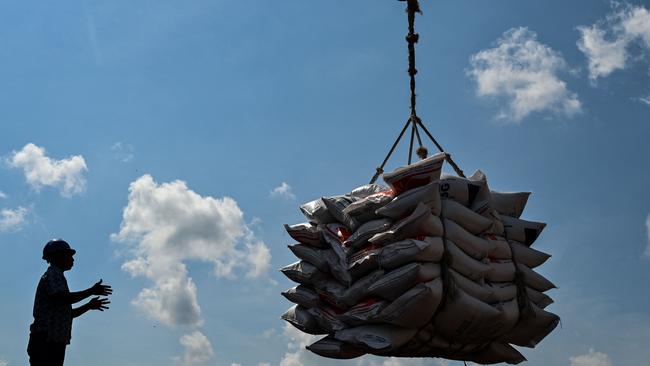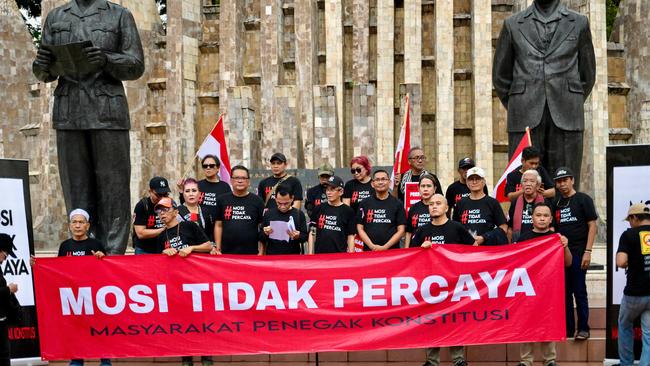Families pay the price for election campaign sweeteners
Critics say the government handed out so much free rice to poor Indonesians during the election campaign it distorted the market

As Indonesians await formal confirmation of Prabowo Subianto’s presidential election win this week, an apparent cost of that victory is being felt at kitchen tables around the nation in the form of soaring rice prices and market shortages.
Some shops have begun imposing limits on the amount of rice that can be bought as shoppers stock up for fear of further shortages and higher prices during the fasting month of Ramadan.
Many have questioned how there could be shortages after the government imported a massive three million tonnes last year – six times the volume bought the previous year despite rice production being down just 1.39 per cent year on year.
Those in the camps of Mr Prabowo’s rival candidates claim the answer is simple.
A social assistance program (or bansos) rolled out during the election campaign that comprised cash and rice handouts to 22 million poor families was so large it distorted the market.
The government gave away at least 1.5 million tonnes of rice between last March and the first week of February, a good portion of that from September as election campaigning heated up and it became clear President Joko Widodo was backing his defence minister as successor. Local media reported some handouts included Prabowo campaign stickers.
Thousands of legislative candidates vying for seats in the world’s largest single-day election also independently bought huge amounts of rice for campaign giveaways.
Jokowi has been accused of misusing the resources of the state to help Mr Prabowo and his own son Gibran (Mr Prabowo’s running mate) win office.
He has denied the allegations even as defeated presidential candidates Anies Baswedan and Ganjar Pranowo gather evidence for a legal challenge in the country’s Constitutional Court.

But with the rising cost of Indonesia’s critical food staple hurting ordinary citizens, the government has been forced to address the issue.
On Monday the head of Bulog, the agency responsible for managing food distribution and price control, assured the government still held a million tonnes in rice reserves despite having drawn down stocks for social assistance and price stabilisation programs.
Bayu Krisnamurthi could not say, however, whether prices had reached their ceiling or would continue to increase as other pressures, such as higher fertiliser and labour costs, also began to bite.
“In the end, rice prices will not be as low as before. Additionally, informal labour wages have also started to rise, and the cost of living has increased,” he said.
The director of Jakarta’s Centre of Economic and Law Studies, Bhima Yudhistira Adhinegara, told The Australian that Jokowi’s bansos program did not fully explain the price hikes, but was at least partially responsible for current market distortions.
“Rice stocks were being seized by legislative candidates and also for social assistance. Candidates were buying from large-scale rice mills … for political campaigning purposes, and not in small amounts,” he said.
“Meanwhile, the social assistance program was just introduced in 2023.
“This is the first time there’s been a distribution program for 10kg of rice. That really distorted things.”
Competition for rice between politicians and retailers had reduced stocks and driven prices up at a time when stocks were traditionally already low ahead of a March-April harvest.
At an east Jakarta market on Tuesday, rice trader Soni said that prices reached unprecedented highs last month and only “started to go down about two weeks ago when the President said so”.
That had not yet brought relief to Indonesian householders such as Eli Rohyani, whose family of four was struggling on a monthly wage of just four million rupiah ($400) even before prices rose 25 per cent in recent months, she said.
Social activists have warned persistent high prices could push more Indonesians below the poverty line given millions of poor families spend an average 22 per cent of their monthly earnings on rice alone.



To join the conversation, please log in. Don't have an account? Register
Join the conversation, you are commenting as Logout